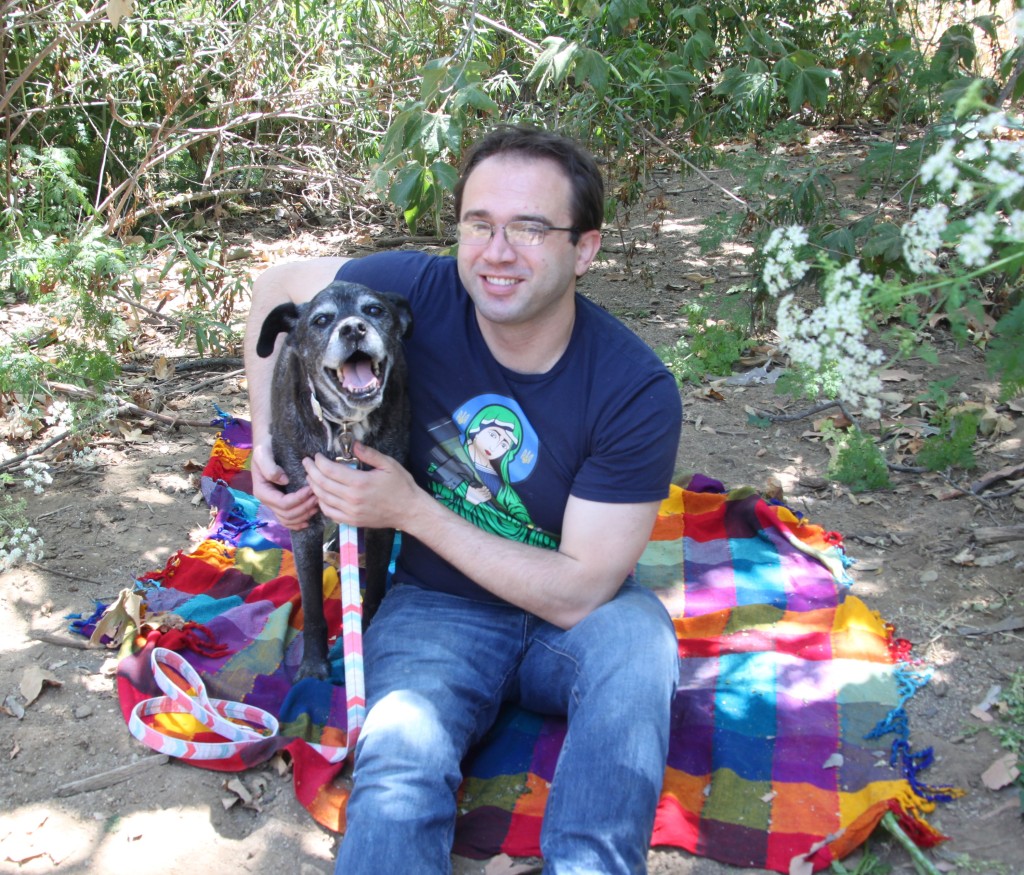Over a century ago, the Russian anarchist prince Peter Kropotkin (1842–1921) challenged Charles Darwin’s emphasis on the centrality of competition in the “struggle for existence,” which Darwin defined as natural selection. In Mutual Aid: A Factor of Evolution (1902), Kropotkin defies this Victorian biologist’s ideas, which gave rise to a social Darwinism that naturalized strife, individual gain, and common ruin. Famously, the Russian scientist argued instead that cooperation is equally, if not more, important than competition in “the maintenance of life, the preservation of each species, and its further evolution.”
In his study, Kropotkin writes that “[a]ssociation and mutual aid are the rule with mammals.” With regard to “the great tribe of the dogs,” he identifies it as “eminently sociable,” and praises canine collectivity in terms of hunting and self-defense. Indeed, this insight anticipates the “canine cooperation hypothesis,” which explains the close ties between dogs and humans as being based on pre-existing cooperation within wolf packs. In parallel, the sci-fi author Kim Stanley Robinson, in Ministry for the Future (2021), asserts that “[w]e turned wolves into dogs and they turned us into humans.” Such a possibility emerged, on his account, because the canines taught early humans about friendship and cooperation, just as we domesticated them in turn.
In this sense, my experience with Gema, a boxer-lab mix adopted as a rescue puppy by my sister and mother, provides a tender affirmation of Kropotkin’s sense regarding the centrality of “Mutual Aid and Mutual Support” in our lives. Gema was a very sweet companion animal who provided a lot of love to our family and her fellow rescue dog, Rumi. She lived with my mom, who would graciously and surreptitiously bring her to stay with me at my apartment after especially hard days at work—even if this was against the rules. I vividly recall how, one afternoon, as I was visiting with and petting Gema, her happiness was testament to my mother’s spontaneous exclamation: “Life is so beautiful!”
Gema herself not only provided and needed mutual aid, but also, her care uncovered it. When my mom traveled for holiday, particularly to visit my sister, I would come take care of her and Rumi. Besides taking our daily (or twice-daily) walks, we would all cuddle together on the couch while I read some book or another. Once, when Gema was still quite young and energetic, at a time when my sister and I were away, my mom became ill and could not properly care for her. As a result, she asked my good friend Liz to take care of Gema temporarily, and Liz accepted her without hesitation—despite Gema’s mischievous and hyperactive nature then.
Overall, these are my two favorite memories of Gema: first, of the trip that she, my mom, Liz, her dog Lucy, and I took to Huntington Beach on the Fourth of July, 2017; and second, of the picnic that she, my mom, and I had in Griffith Park for my birthday in 2022. This beach trip, which celebrated independence and interdependence, was a lot of fun, as we humans and dogs spent hours swimming and playing in the waves. At Griffith Park (see image above), we hiked until we found a proper grove to eat our falafel, hummus, and tabbouleh in. Of course, as part of this idyll, we undoubtedly shared some of our food with Gema.
Even toward the end of her life, Gema continued to be an exceptionally loving dog. Strikingly, in February 2023, the same day of the book launch for my Queer Tolstoy: A Psychobiography, she was in especially high spirits. In the hours before the event, as I made final preparations, Gema was even closer to me than usual, making clear her joy through body language. It was almost like she knew about the book launch, and was proud of it! Plus, about ten days before she passed away, when I was house-sitting for my mom and caring for her and Rumi, I had a bit of a stomach ache in bed late at night. Having somehow sensed this using her canine faculties, she immediately offered her body heat to help. Despite her advanced age and widespread arthritis, Gema literally jumped to my side in the dark! My discomfort quickly subsided.
Ultimately, I feel very grateful for having had the chance to get to know and live with Gema. Her last days in the veterinary hospital were heartbreaking. Yet, even while she was there, struggling to survive, we connected both through touch, as through her lovely, blinking eyes. Now, I know that this mutual gaze—which likely has played an important role in canine-human co-evolution—activated oxytocin (the “love hormone”) in us both, despite the sad circumstances.
In this sense, I sympathize with Poppy Noor, who writes: “My dog taught me just how much love I have to give, and that’s a pretty spectacular thing.” I agree: dogs and humans cooperating and loving each other exemplifies mutual aid, a practice which, as Kropotkin describes, “grants the best chances of survival to those who best support each other in the struggle for life.” In this vein, I’m so thankful for Gema, my mutual-aid dog!

